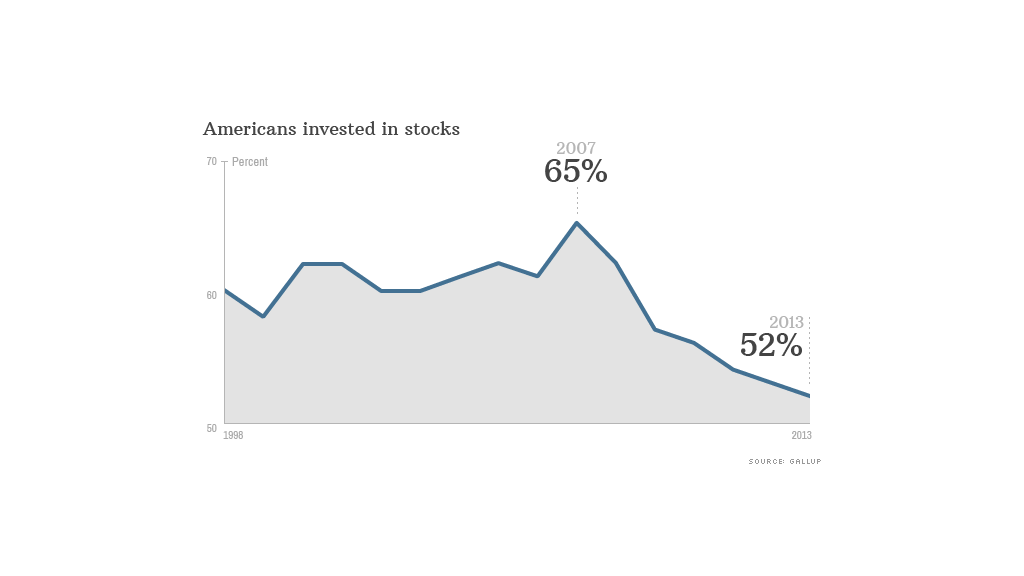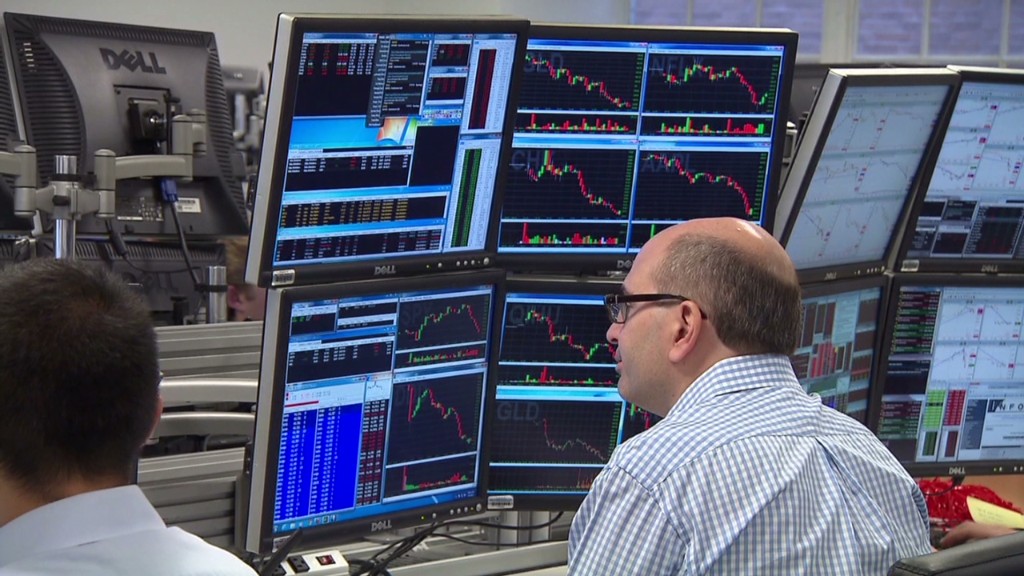
U.S. stocks may be hitting new highs on nearly a daily basis, but many aren't enjoying the benefits of the rally.
Stock ownership among Americans is at a record low. Just 52% of adults say that they or their spouse own any stocks, either individually or through funds. That's according to Gallup, which began tracking this in 1998.
The sharpest decline is among middle-income Americans, classified as those earning between $30,000 and $75,000. In 2008, about 66% of middle class Americans owned stocks, compared to just 50% now.
Related: Market bears still waiting for pullback
The Gallup poll was conducted in April, after the Dow and S&P 500 rose beyond 2007 levels to new records.
The percentage of overall Americans who own stocks has been falling steadily since the financial crisis. Ownership peaked at 65% in 2007. It has been below 60% since 2009, even as the broader market has bounced back from the March 2009 lows.
According to Gallup, part of the reason fewer Americans are invested in stocks may be due to their inability to buy in. Stock ownership stood north of 60% when unemployment was relatively modest. But ever since the recession took hold and unemployment spiked, ownership has been on the decline.
Related: What's next for the markets? Special coverage from CNNMoney
And while the jobless rate has fallen back to 7.5% from a high of 10% in October 2009, it may still be too high to support broader stock ownership.
"Without a job, some Americans may simply be unable to afford stock investments, while others may fear the market is still too risky as long as joblessness remains a national problem," according to Gallup.

Many experts also blame the lingering effects of the 2000 tech crash and the 2008 financial crisis for the reason that individual investors have been shunning stocks and plowing into bonds over the past several years.
Between 2008 and 2012, individual investors yanked more than more than $500 billion from U.S. stock mutual funds while adding more than $1 trillion to bond funds during the same period, according to Investment Company Institute.
While these investors have begun to dip back into stocks this year, their attraction to bonds still remains far stronger.


